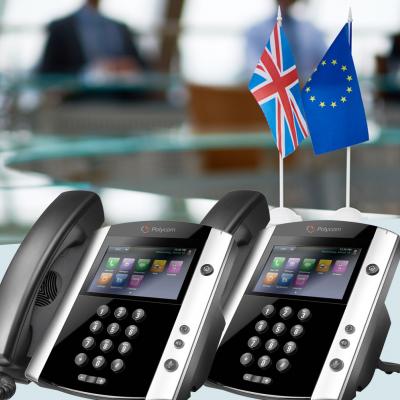
Fraud Awareness: working together to stop coronavirus scammers
At the start of Covid-19, it was predicted that fraud levels would rise across almost all business sectors.
Sadly, that foresight has become a cold, hard fact as desperate people take desperate measures.
While many of us now work away from the office, it makes it difficult to know what's real and what's not: what's a fraudulent email and what's perfectly safe to click on. The red flags aren't quite as easy to spot when you're working from home, in silo, and trying desperately not to be a burden to your colleagues and raise your 'zoom hand' with a question every time you want to check something unusual out.
But you really should. A quick phone call is a far safer option compared with inviting a virus or hacker to your work PC.
The telecoms industry is a prime target
At Standard Utilities, we're constantly on the lookout for artificial transactions, despite them sometimes being hard to spot. A request for a business telephony system can seem absolutely plausible in the first instance: the bank details are provided and backed by official bank statements and proof of business address; the company checks out just fine on Companies House. And basically, in terms of quality control, it all looks completely legit.
So if that's the case, why do we keep our guard up when everything looks perfectly fine?
Well, in some cases a request for a new business broadband line or business telephony system can be so that a fake business or phony call centre can be set up. One that later goes on to elicit money from innocent people and organisations. Scammers need the right tools to be able to make the right connections - and by that we mean making outbound calls and exploiting anyone who'll fall for it, which is where having access to a hosted or VoIP business phone system and/or smart business telephony service can support these types of fraudulent activities.
They need to look and feel the part to be able to pull off what appears to be a wholly professional operation. And, in many cases, these scammers will be impersonating a larger organisation and pretending to be someone they're not.
We're scrupulous when it comes to identifying our customers
Like other businesses that offer credit facilities for things like business phone leasing, CCTV equipment, Temperature Screening Cameras and so on, we've a tough job on our hands when it comes to proving business identity.
There are regulatory steps to follow that include AML (anti-money laundering) risk and quality control checks, and certain documents we'll need to see before we can sign off or approve any business broadband line or business phone installation - or leasing credit facilities.
It's best that we don't list everything that we do! But know that our checks are stringent and that we're well aware that telecoms companies can be a prime target for using our products to pull off impersonation and things like business toll fraud.
What to do if you receive a scam call?
Firstly, and no matter who they say is calling, never give any personal details over the phone. It used to be that banks (as an example) would call you and run through ID checks where you'd have to impart your personal information. Now, they'll typically ask you one question that's pretty generic, to help keep you safe.
While any fake caller will be so convincing that sometimes you'll want to waiver, please don't. They'll say, for example, that they're calling from HMRC or Trading Standards or a perhaps well known debt collection agency. Anyone they think will be convincing enough for you to handover sufficient personal data, which they'll go on to use to extract funds from your accounts or borrow credit in your name or the name of your business.
So say nothing. Just capture as much information as you can, then report it to Action Police online or by phoning 0300 123 2040.
Many people and organisations are caught out when it comes to fake mail too, as in delivered post. Hundreds of thousands of pounds are lost each year to scammers through what looks like a plausible mail request that is anything but...
If it sounds too good to be true, it usually is!
Take care of things like investment scams, where you're promised the earth when it comes to an 'amazing' return on your investment.
An investment scam is typically where your funds are collected, with the promise of a rate of return so high that it makes the high street banks look like the crooks with their poor rates of interest! Instead, though, scammers will use your money to either to pay back any previous investors - usually those making the most noise or those who've smelt a rat - or they'll use your cash to bask in the sort of lifestyle we can only dream about.
Thanks to digital platforms and endless ways of reaching both people and businesses online, investment scams can be so highly detailed and immaculate in appearance that even professional investors have been taken in.
Our pledge
While we can't stop them all, Standard Utilities does its very best to put the right measures in place, so fraudsters like these don't slip through the net. Fraudulent activities are now heighted, as predicted, because of coronavirus. And, cruelly, these types of people are taking advantage of the harsh financial downturn.
Take Five campaign
If you'd like to learn more about how to stay safe, click on Action Police or visit Take Five, a nationwide campaign that offers impartial advice to help combat email, phone-based and online fraud where criminals impersonate trusted organisations.
And remember, if something sounds too good to be true, it usually is!




